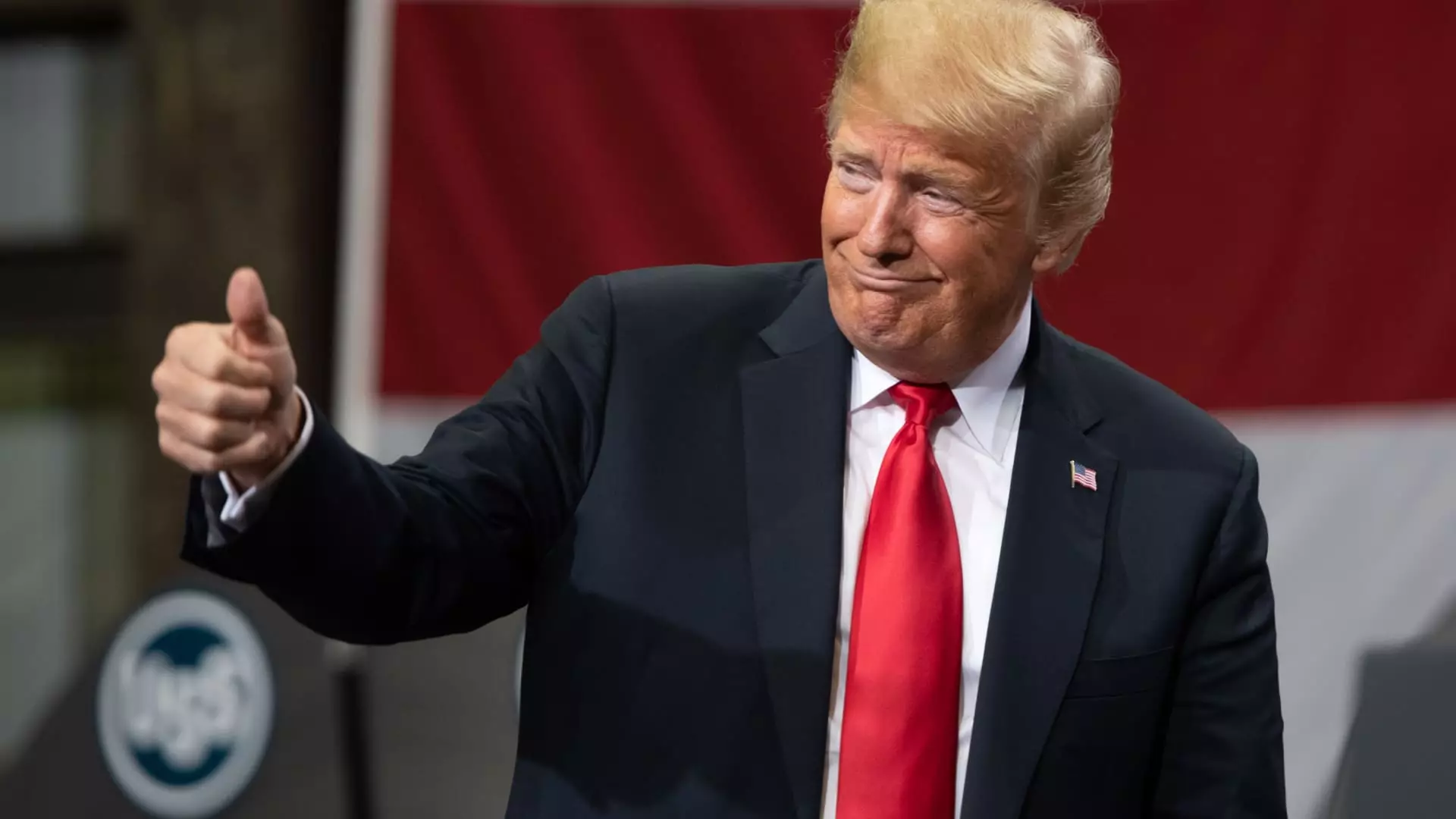The recent volatility in the stock market embodies the pulse of American financial sentiment. On a seemingly average Wednesday, just after the market opened, President Donald Trump unleashed a post on Truth Social that set the financial community ablaze: “THIS IS A GREAT TIME TO BUY!!!” It’s startling how a single tweet from a polarizing figure can catalyze such a dramatic surge in market activity. This situation underscores a troubling phenomenon in contemporary capitalism—it exposes how susceptible our economic environment is to whims and personalities rather than sound financial principles. Investors who followed suit and jumped into the market at Trump’s behest experienced a notable windfall. However, this raises an ominous question: was this merely a savvy financial tactic or a manipulation of market dynamics that should concern us all?
Twitter as a Trading Platform
With social media platforms increasingly influencing the economy, far too many people have begun to equate Twitter feeds and social media posts with solid investment strategies. When Trump prompted followers to buy stocks, the subsequent market reaction was nothing short of immediate. These aren’t just idle messages; they are catalysts for real financial outcomes, and results vary drastically based on timing. The S&P 500 ETF (SPDR) saw its shares leap 10.5% in a day, the largest one-day gain since 2008. It isn’t merely a coincidence. Instead, it highlights a glaring shift towards a culture where stock prices can swing wildly based on the unfiltered musings of public figures. Such dynamics worry me. We run the risk of fostering a financial environment where fads and whims dictate investor behavior over sound economic indicators.
Unsustainable Gains and Immediate Risks
One could say, “A win is a win,” but is it justified under ethical pretenses to sell an investor’s financial future short with fleeting gains driven by social media? Certainly, for those who acted on Trump’s urging saw substantial returns—like a hypothetical $1,000 investment in Trump Media and Technology, which surged over 21%. Nevertheless, the net pressure on the market still reveals dire consequences. Stocks remain under considerable pressure compared to the level prior to earlier declarations of tariffs. So, while the gleaming gains seem enticing, they mask the underlying instability.
Investor forums like Reddit’s WallStreetBets thrived on the chaos of this market surge. The reactions ranged from delight at sudden profits to outcries of potential market manipulation. Can we ignore the fact that the erasure of tariffs looks suspiciously timed to buoy his stocks? It opens the floodgates to accusations of insider trading, and there’s a valid concern that declaring a “great time to buy” in the wake of tariff rollbacks could be seen as governance entwined with personal financial gain.
The Dangers of Politicizing Investment
We are at a crossroads whereby stock market fortunes can be significantly altered by stark political rhetoric. In this instance, Trump is quickly gaining recognition for accomplishing something that should traditionally rely solely on fiscal policy and market analysis. Relying on a political figure—an individual whose credibility is highly contentious—for investment advice risks lowering our collective intelligence as investors. The market should serve the economy, not the whims of a headline.
Elon Musk’s Tesla illustrates this intersection of politics and finance. As one of the most visible CEOs tied to Trump, Musk’s own controversial actions have ushered in a peculiar state of affairs where markets are seemingly interwoven with pop culture and political flair. Why should anyone want to invest in a company when the stock’s value rests precariously on one individual’s next move? This questioning attitude is crucial if investors wish to distance themselves from an inevitable crash rooted in impulse rather than sound strategy.
The Specter of Market Manipulation
To enable this unrestrained influence of political figures risks outright manipulation of the market, damaging the integrity of investing as a principle. When potential investors choose to act, they must separate rational thought from the intoxicating highs of fleeting gains driven by personalities. Trading stocks based on sentiments spouted on a social media platform only serves to complicate an already layered financial system, raising ethical concerns about fiscal responsibility and transparency.
As gains and losses are dictated by the allure of transient rhetoric, we walk a fine line between opportunity and reckless gambling. The voices in the marketplace need a dose of rationality that transcends influence and impulse if we are to cultivate a steady, deliberate financial future. Would it not be wise to push back against this unsettling trend?

